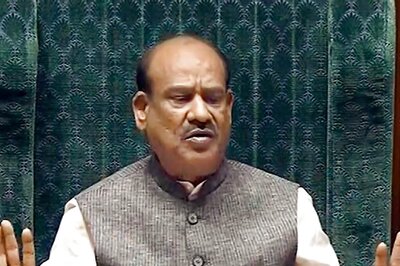
views
window._taboola = window._taboola || [];_taboola.push({mode: 'thumbnails-a', container: 'taboola-below-article-thumbnails', placement: 'Below Article Thumbnails', target_type: 'mix' });Latest News
In a bid to reduce the spread of fatal diseases like AIDS during blood transfusion, the Indian Medical Association is all set to introduce the Nucleic Acid Testing(NAT) for all its blood samples. The NAT enables the identification of diseases like the HIV within a period of 72 hours after the infection.
The current test procedures identify the deadly viruses only after a period of three to four weeks after the infection sets in.
The NAT is now mandatory in several developed countries, including many European and Asian countries.
In India, the Gujarat government has made the test mandatory at all its blood banks.
Mumbai and Bangalore have also taken steps to make the NAT mandatory before the blood transfusion procedure.
In Kerala, the IMA here is the first body to introduce the test. But the high cost of testing is a serious concern to the authorities.
“The spread of fatal diseases through transfusion is a serious concern.
Each blood sample is sub-divided into components like red blood cells, platelets, plasma and so on. This means that an infected blood sample can affect up to five persons. The main concern when it comes to the NAT testing is the high cost. Unless the procedure is conducted on a large sacle, it will raise the cost of blood from the IMA blood bank. Currently, we are holding discussions with the private hospitals across the state, so that we can perform the NAT in the blood banks of these hospitals as well,” said Dr Narayanankutty, chairman of the IMA branch here.
The IMA hopes to be able to carry out the tests through an increase of `250 per unit of blood sold. Apart form detecting HIV, the test can also detect Hepatitis B and C infection at its early stages. The system will be operational in about 15 days, sources with the IMA said. The IMA officials said that an awareness campaign would be launched soon.



















Comments
0 comment